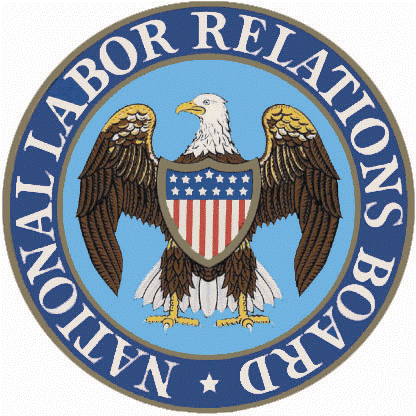By Jeffrey M. Place
Last week, NLRB General Counsel Richard Griffin issued a memorandum to the National Labor Relations Board’s Regional Directors, outlining legal issues that the Regions cannot address without first submitting to the Board’s Division of Advice in Washington, D.C.
The memorandum includes a lengthy list of issues Griffin considers “difficult” or “rare,” where the law is “in flux,” or where issues have “traditionally” been submitted to the Division of Advice.
According to Griffin, these types of matters must undergo a centralized review process to ensure internal consistency among the Board’s attorneys when addressing them. More importantly, the memorandum also identifies “General Counsel initiatives” and “areas of the law and labor policy that are of particular concern” to Griffin.
Key areas the NLRB plans to focus on
The memorandum offers employers a preview of some key areas where Griffin is likely to focus the NLRB’s prosecutorial efforts in the next few years.

Issues affecting union and non-union employers alike include:
- Whether employees should have a right to use an employer’s email system for union organizing or other protected concerted activity;
- Whether non-union employees have a right to have a co-worker representative present during investigatory interviews that may potentially lead to discipline; and,
- The extent to which employees of subcontractors working on another employer’s property should have access to the property for the purpose of union organizing or other protected concerted activity.
Employers of represented employees should take note that the General Counsel is interested in expanding the duty of employers to furnish company financial information to unions during bargaining, particularly when company representatives have made “specific financial assertions” that could be proven or disproven by examining the company’s financial records, or when the company’s position at the bargaining table amounts to a claim that the company is not financially able to meet the union’s bargaining demands.
An “aggressive agenda” from the NLRB’s General Counsel
An agenda for explanding Similarly, the General Counsel intends to re-examine the scope of an employer’s duty to furnish financial information to its union in connection with plant relocation or closure decisions. In addition, Griffin is interested in arguments that the permanent replacement of economic strikers, though ordinarily lawful, had an unlawful motive and was therefore illegal.
Also of interest to Griffin are cases involving a newly organized employer’s obligation to bargain before disciplining employees the union represents, continued focus on whether “at will” provisions in employer handbooks may interfere with Section 7 rights, and methods for securing broader relief for undocumented workers who are the victims of conduct found unlawful under the National Labor Relations Act.
General Counsel Griffin also intends to continue existing initiatives to seek more aggressive remedies where employers engage in unlawful conduct in an effort to “nip” organizing drives “in the bud,” and when newly organized employers fail to bargain in good faith for a first contract with the union.
A General Counsel’s ability to influence the development of the law is limited to some extent by the cases that come before him or her. Thus, it remains to be seen whether Griffin will have the opportunity to pursue the initiatives he has outlined in his Mandatory Advice memorandum.
What is clear, however, is that General Counsel Griffin has established an aggressive agenda for expanding the scope and impact of the National Labor Relations Act. Employers are well advised to take note.
This was originally published on Littler Mendelson’s Labor Relations Counsel blog. © 2014 Littler Mendelson. All Rights Reserved. Littler®, Employment & Labor Law Solutions Worldwide® and ASAP® are registered trademarks of Littler Mendelson, P.C.
